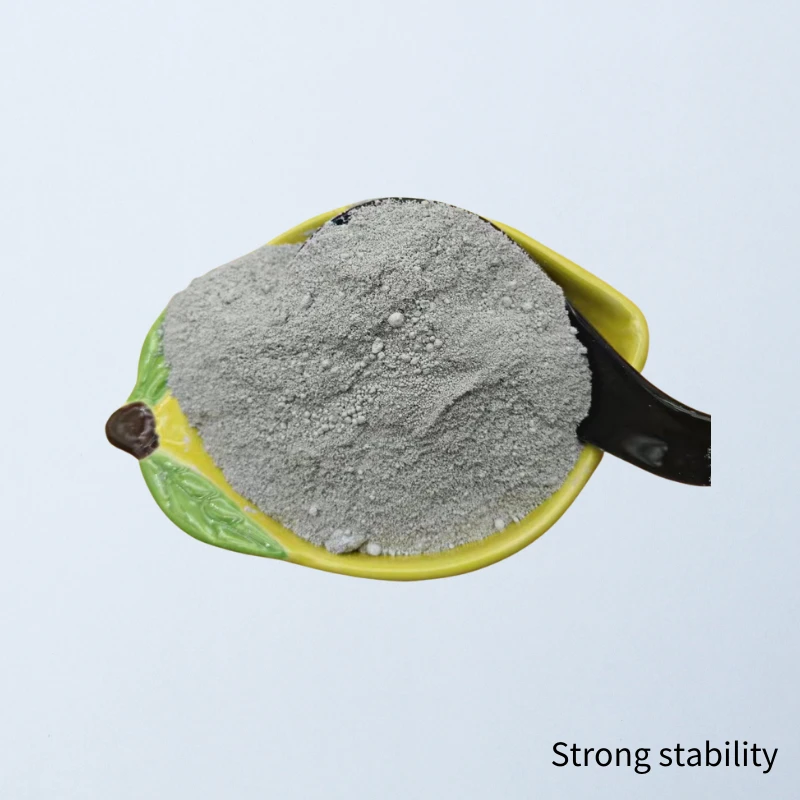
barium carbonate factory
The Barium Carbonate Industry Manufacturing and Applications
Barium carbonate, a white crystalline powder, is a vital chemical compound with a wide range of applications across various industries. It is primarily produced through a series of industrial processes, and its significance can be seen in sectors including ceramics, glass, electronics, and environmental industries. The production of barium carbonate not only showcases the intricacies of chemical manufacturing but also highlights the compound’s essential role in modern technology.
Manufacturing Process
The manufacturing of barium carbonate typically involves the reaction of barium sulfide with sodium carbonate. This process begins with the extraction of barium from natural mineral sources, primarily witherite (barium carbonate) or barite (barium sulfate). The extracted barium is then converted to barium sulfide by heating with carbon in a reducing atmosphere. Following this, barium sulfide is reacted with sodium carbonate in a water solution. The resulting precipitate of barium carbonate is then filtered, washed, and dried to produce the final product.
This manufacturing process requires strict adherence to safety and environmental regulations, as barium compounds can be toxic in certain forms. Manufacturers invest heavily in technology that minimizes waste and emissions, ensuring compliance with local and global environmental standards. Advanced filtration systems and closed-loop processes significantly reduce the environmental impact of production.
Key Applications
barium carbonate factory

Barium carbonate is used in a variety of applications, making it a crucial component in many industries. One of the most notable uses is in the ceramics industry, where it serves as a flux agent. Adding barium carbonate to ceramic formulations aids in lowering the melting point of the mixture, improving its melting properties and creating a smoother finish. This is particularly important in the production of porcelain and stoneware, where aesthetics and durability are critical.
In the glass industry, barium carbonate is employed to enhance the clarity and luster of glass products. It acts as a stabilizer in the production of lead glass, which is renowned for its brilliance and clarity. Furthermore, it helps improve the chemical durability of glass, making it suitable for a wide range of products, including glass tableware and decorative glass items.
Another important application of barium carbonate lies in the electronics industry, where it is used in the manufacturing of cathode ray tubes (CRTs) and infrared optical components. Its ability to absorb X-rays and other forms of radiation makes it a valuable material in various electronic devices.
In recent years, barium carbonate has also found a significant role in environmental applications. It is utilized in wastewater treatment processes, particularly in the removal of sulfates from industrial waste streams. The reaction of barium with sulfates forms insoluble barium sulfate, which can be easily removed from the water, ensuring cleaner discharge into natural water bodies. This application is crucial as industries face increasing pressure to manage wastewater responsibly.
Conclusion
The barium carbonate factory plays a pivotal role in producing this essential chemical compound that serves various industries. The careful consideration of safety and environmental impacts further emphasizes the need for sustainable practices within the manufacturing process. As technology continues to evolve, the demand for barium carbonate is expected to grow, potentially leading to new applications and innovations. Whether in ceramics, glass, electronics, or environmental management, barium carbonate remains an indispensable material that underpins many aspects of modern industrial production.
Share
-
Premium Glass Sand Solutions | High Purity SupplyNewsAug.03,2025
-
Premium Talcum Powder Enhanced with GPT-4 Turbo | Soft & Long-LastingNewsAug.02,2025
-
Fly Ash Solutions Enhanced by GPT-4 Turbo | Sustainable InnovationNewsAug.01,2025
-
Natural Premium Bentonite Cat Litter - Superior ClumpingNewsJul.31,2025
-
Premium Resin Coated Sand - High Heat Resistance CastingNewsJul.31,2025
-
High Quality Silicon Carbide Grit for Abrasive ApplicationsNewsJul.30,2025






